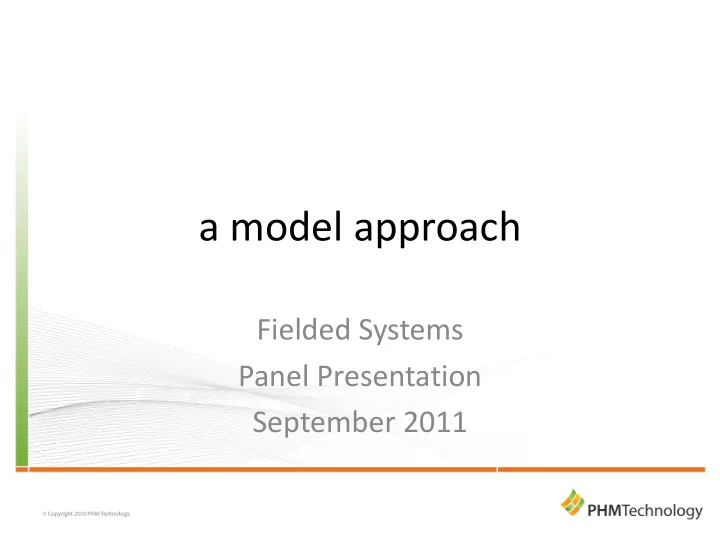

a model approach Fielded Systems Panel Presentation September 2011
Model Based Approach • Formalization of the information structures (particularly if the data structures are consistent) • Optimize technical integrity for on-going engineering analysis based on consistent data sources • Enable “what - if analysis” to understand the potential operational and sustainment impacts of proposed design / technology modifications or updates
Configuration Management • Model based architecture provides the ability to analyse the specific configuration of the platform – without extensive ‘rework’ to update • Model based approach enables the user to conduct analysis based on operational performance (i.e. field data such as removals or maintenance activities conducted) rather than expected (theoretical) reliability of the system / platform September 2011
Knowledge Capture • Spreadsheets are ‘developer specific’ (subjectivity) and often not directly usable by other users to effect system updates (configuration management) • System knowledge is accrued from multiple sources, including supply chain, OEMs, operators & maintainers • System knowledge develops over platform life September 2011
Knowledge Transfer • Model based approach with consistent data structures ensures that system knowledge is developed and described in a format that is accessible to both related functional ‘consumers’ of the information & future users • Many organisations have comparatively rapid staff turnover (both within and between organisations) • “the changing of the guard” September 2011
Accountability • Quality of supplier information (component focused) increases the risks at the system level (based on ‘remediation’ by system integrators to develop platform level analysis) • Legal / financial implications within the PBL construct • Model based approach provides traceability within the organisation for specific engineering decisions – to avoid ‘making the same mistakes’ September 2011
Conclusion • Model based analysis provides significant cost and quality benefits to OEMs and operators • Configuration management is standard practice in most industries / disciplines – PHM has a self-evident requirement for this • Knowledge capture and transfer of domain knowledge and system specific experience is essential September 2011
Questions? September 2011
Recommend
More recommend